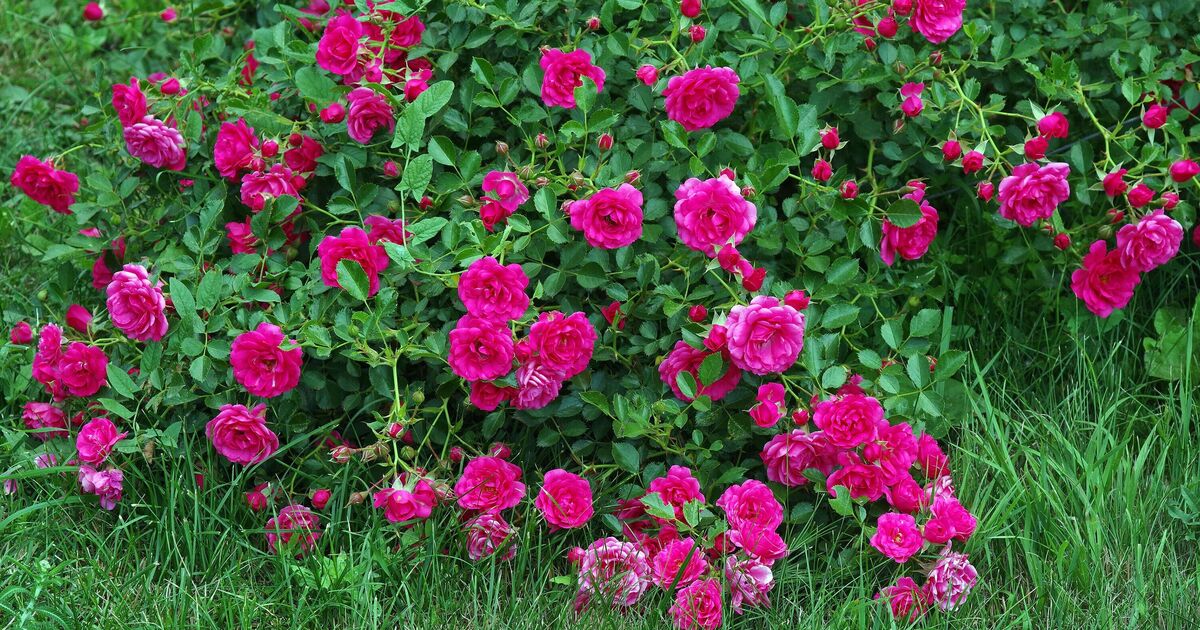|
Roses will produce healthy blooms all summer long if fed 1 thing in spring Roses are one of summer's most beautiful blooms, with most varieties producing multiple flushes of flowers throughout the season. Many modern roses are repeat-bloomers, meaning they produce flowers continuously throughout the season. However, gardeners are being urged to care for their blooms correctly to provide the plants with enough nutrients to produce beautiful flowers all summer long. According to Chris Ware, a local garden expert at Climbing Wild, roses are hungry plants and require regular feeding to produce lush foliage and continuous flowers. He said: "Applying a slow-release rose fertiliser in early spring ensures your plants get a steady supply of nutrients. "Look for a balanced fertiliser that contains nitrogen for leaf growth, phosphorus for root strength, and potassium for blooms. A handful of well-rotted manure or compost around the base of each plant will also enrich the soil." Pruning is also another important jobs to do in early spring. It encourages new growth, better air circulation, and stronger flowering stems. "Now is the perfect time to prune roses before they fully wake up from dormancy. Focus on cutting away any dead, diseased, or weak stems, aiming to create an open shape that allows air to circulate," said the gardening expert. "For hybrid teas and floribundas, prune back to an outward-facing bud, cutting at a slight angle to encourage outward growth." According to Chris, good layer of mulch helps roses retain moisture, suppress weeds, and improve soil structure. "After feeding, apply a 5cm layer of organic mulch, such as composted bark, well-rotted manure, or leaf mould, around the base of each plant. This not only locks in moisture but also adds nutrients to the soil as it breaks down," he said. While roses don’t like sitting in soggy soil, regular deep watering is essential once new growth appears. He added: "Water deeply once or twice a week, especially during dry spells, to encourage deep root growth. Avoid overhead watering, as wet leaves can encourage fungal diseases such as black spot." Catching pests and diseases early can prevent major issues later in the season, according to the expert. "As temperatures rise, start checking for aphids, black spot, and powdery mildew. If you spot aphids, simply rub them off with your fingers or use a mild soap spray. Keeping the area around roses tidy and ensuring good airflow reduces disease risks," said Chris. Source link Posted: 2025-03-30 04:50:18 |
Blue Badge holders 12-week alert or risk losing parking rights
|
|
Pope Francis: tributes paid after head of Catholic church dies aged 88 – latest updates | Pope Francis
|
|
Cleaning guru says wash duvet every fortnight on 1 condition
|
|
Three indoor plants to keep in your bathroom that smell like 'perfume'
|
|
South Carolina man to be killed in US’s first firing squad execution in 15 years | South Carolina
|
|
U.K. police arrest man on suspicion of manslaughter in North Sea ship collision
|
|
Rashford and Henderson named in Thomas Tuchel’s first England squad: football – live | Football
|
|
Can Europe replace the U.S. in the Ukraine war?
|
|







